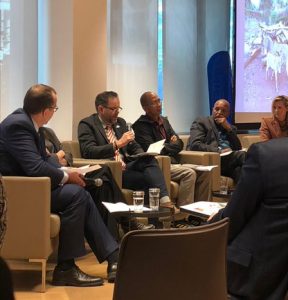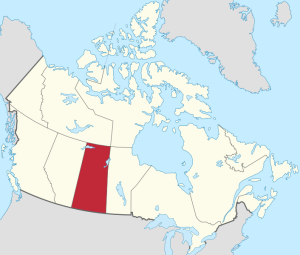The debate over biotech seeds is about to fade away in the rearview mirror as scientists and farmers embrace new genomic techniques (NGTs).
In the coming months, regulators in the European Union will make key decisions about the treatment of NGTs on farms and forks.
They have a remarkable opportunity to accept technology that will keep food abundant and affordable in a world suffering from the stresses of war, chanjman klimatik, and nutritional insecurity.
This technology holds incredible potential for application everywhere. Mwa pase a, I traveled to Brussels for a gathering of global farmers, who described the ways NGTs could improve their lives and the food security of their nations.
 Gilbert Bor of Kenya said that NGTs could deliver pest-resistant crops. Guillermo Breton of Mexico talked about how this new technology will improve niche crops that are better adapted to the soil and climate of his country. Diana Lenzi of Italy discussed the possibility of NGTs allowing her to grow grapes that are protected from pests. David Danio pleaded for seed innovation that would provide food security for the Philippines.
Gilbert Bor of Kenya said that NGTs could deliver pest-resistant crops. Guillermo Breton of Mexico talked about how this new technology will improve niche crops that are better adapted to the soil and climate of his country. Diana Lenzi of Italy discussed the possibility of NGTs allowing her to grow grapes that are protected from pests. David Danio pleaded for seed innovation that would provide food security for the Philippines.
 At the top of my wish list is drought resistance. Saskatchewan starts out dry, but we’ve now struggled through seven years of abnormal dryness on my farm. We have no idea when or if this drought will end. What we do know is that we’ll keep farming—and we’d love for NGTs to help us fight through the hard times with crops that are as resilient as the people who farm them.
At the top of my wish list is drought resistance. Saskatchewan starts out dry, but we’ve now struggled through seven years of abnormal dryness on my farm. We have no idea when or if this drought will end. What we do know is that we’ll keep farming—and we’d love for NGTs to help us fight through the hard times with crops that are as resilient as the people who farm them.
New genome techniques, including gene-editing, are innovative. NGTs make targeted changes to a plant’s own DNA. They give plant geneticists the tools to work with the existing genome of a crop, searching for native genes that might, pa egzanp, unlock the key to disease resistance by helping oranges and bananas defeat the tree-killer diseases that are putting the future of these fruits in jeopardy.
In this sense, NGTs are simply an extension of conventional breeding, which is the kind of breeding that farmers have practiced for millennia. They use the same approaches that allowed ancient farmers across generations to transform little red berries into big and delicious tomatoes—a crop that can’t survive in the wild, but one that can flourish in cultivation and become a staple food for people everywhere.
Developing a single new trait for a crop through conventional breeding methods can take a decade, and that’s if everything goes smoothly.
NGTs allow us to move with precision and deliberation.
 That’s an attractive idea everywhere—and for me as a farmer in Canada’s province of Saskatchewan, it provides an amazing opportunity.
That’s an attractive idea everywhere—and for me as a farmer in Canada’s province of Saskatchewan, it provides an amazing opportunity.
In our northern region with a short growing season, we can raise a single crop each calendar year. This means that in my time as a farmer, I get to be a part of about 40 rekòt, not including my childhood years growing up on our family farm. It recently startled me to realize that I’m more than halfway through this cycle, as I’ve been an adult farmer for 23 ane. Between now and retirement, if I’m lucky, I’ll hope to see conventional breeding improve our crops slightly, making our wheat a little more efficient with water or a little better at resisting fungus.
NGTs let us push the get’er done button. We won’t have to wait a decade or more for baby-step improvements. As the science develops, we will jump forward—and grow crops that can feed more people on less land than ever before.
As the EU takes up the question of NGTs, it has a new chance to set a worldwide standard of smart regulation that is pro-science, pro-farmer, and pro-consumer.
In an era of rapid population growth, urbanization, and threats to the environment, NGTs allow us to meet the needs of people as well as to conserve our natural resources.
We should all get behind this opportunity to put the fear of seed innovation in the rearview mirror.
Fellow GFN members participating in the Brussels-based discussion included (shown in featured image above): Diana Lenzi, Itali; Gilbert Arap Bor, Kenya; Cherilyn Jolly-Nagel, Kanada; Guillermo Breton, Meksik; David Danyèl, Filipin.


